PA Bill Number: HB2228
Title: Providing for limitation on judicial enforceability of nondisclosure and nondisparagement contract clauses regarding sexual assault or sexual ...
Description: Providing for limitation on judicial enforceability of nondisclosure and nondisparagement contract clauses regarding sexual assault or sexual ... ...
Last Action: Referred to Judiciary
Last Action Date: Feb 20, 2026
Over 30 Florida local governments sue state, seek ability to regulate firearms :: 01/20/2020
TALLAHASSEE, Fla. -- In a state well-known for its competitive political races and heated debates, one issue that continues to be fiercely discussed in Florida is that of gun control and 2nd Amendment rights.
To some, like Carey Baker, the 2nd Amendment is something worth passionately defending.
"It applies just as much today as it did over 200 years ago," Baker said. "The right to bear and keep those firearms -- that should never change. It truly is based on an individual's right to self-defense. If you have the right to defend yourself, your family, your country, you should have the means to do it."
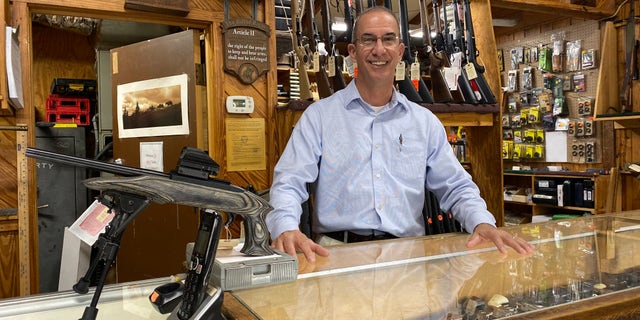
Carey Baker, co-owner of A.W. Peterson Gun Shop in Mount Dora, Florida.
By Baker's own admission, he's a bit biased. He co-owns A.W. Peterson Gun Shop in Mount Dora, Fla., which has been in business since the 19th century.
But in the wake of tragedies such as the 2018 shooting at Marjory Stoneman Douglas High School in Parkland, Fla., where 17 people were killed, there are some in Florida seeking to regulate aspects of the 2nd amendment with the same vigor that Baker uses to defend it.
A growing number of cities in Florida are suing the state to challenge a 2011 amendment that inflicts steep penalties on local governments that choose to pass gun-regulating ordinances.
The amendment enforces Florida Statute 790.33, which was implemented in 1987 and states that the power to regulate firearms belongs solely to the state. Prior to 2011, the law was difficult to enforce.
Except as expressly provided by the State Constitution or general law, the Legislature hereby declares that it is occupying the whole field of regulation of firearms and ammunition, including the purchase, sale, transfer, taxation, manufacture, ownership, possession, storage, and transportation thereof, to the exclusion of all existing and future county, city, town, or municipal ordinances or any administrative regulations or rules adopted by local or state government relating thereto. Any such existing ordinances, rules, or regulations are hereby declared null and void.
— Fla. Stat. 790.33
But the 2011 amendment imposed steep consequences to anyone who, in a "knowing and willful" manner, broke the law, with penalties including a $5,000 fine or removal from office. While embraced by some cities, particularly conservative-leaning ones, other municipalities are fiercely fighting the law in the courts.
"What they did in 2011 was took this one step too far," said Nikki Fried, Commissioner of the Florida Department of Agriculture, which is responsible for approving concealed carry permits in the state.

Nikki Fried, Commissioner of the Florida Department of Agriculture (Photo courtesy of Nikki Fried's office).
Fried by no means considers herself to be "anti-gun" and admits herself to owning firearms. Yet, the commissioner has been outspokenly against the tough penalties the law imposes. About 30 municipalities, three counties and more than 70 elected officials have filed suit against the state challening the amendment. After assuming office in 2019, Fried has since joined them.
A circuit court judge declared the penalties were unconstitutional, but the state has appealed the ruling to Florida's First District Court of Appeal. Florida Gov. Ron DeSantis, Attorney General Ashley Moody, and Law Enforcement Commissioner Rick Swearingen are all listed as appellants in a 54-page brief submitted in December of 2019.
While the lawsuits challenge only the penalties imposed by the law, Fried believes local officials should have the ability to propose what she calls "common sense" gun-regulating ordinances. Since local officials, in her eyes, govern closer to the people they represent, she believes they are well-suited to make laws that benefit their constituents.
"Our local governments should have the power to see a problem that’s in their community…and act," said Fried. "And if that's the case, then they're doing their jobs."
That argument, however, does not sit well with Marion Hammer, the former president of the NRA and a current gun-rights lobbyist in Florida.
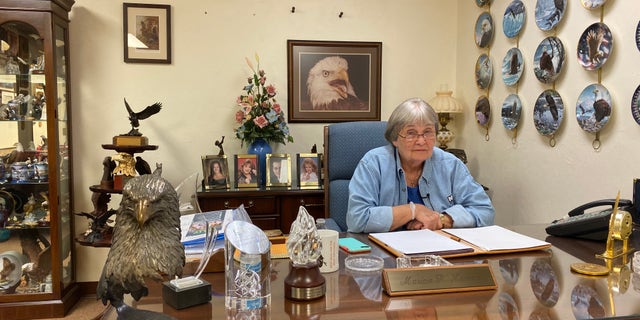
Marion Hammer, former President of the National Rifle Association and a current gun-rights lobbyist in Florida.
"Being close to people has no bearing on whether or not you can impose your personal political preferences on people," Hammer said.
Hammer, who said she's been defending the 2nd Amendment in Florida since 1974, claims decades ago the state had a medley of gun laws, many of which she considered to be unconstitutional. Following the introduction of Florida Statute 790.33, Hammer claims some cities submitted to the state's authority but others did not. She said the steep penalties implemented in 2011 put an end to "bad behavior."
"When you willfully and knowingly violate the law," she said, "we call those people criminals."
Plus, she said, uniform gun laws benefit everyone.
"In a mobile society, people have no way of knowing what ordinance they may violate when they're traveling or cross a city or county line," said Hammer. "It is critically important that in a state, you have uniformity of gun laws."
Hammer fears that if local governments put their own gun regulations on the books, a gun owner could, in theory, be a law-abiding citizen in one region, hop in his or her car and become a law-breaking citizen just down the road.
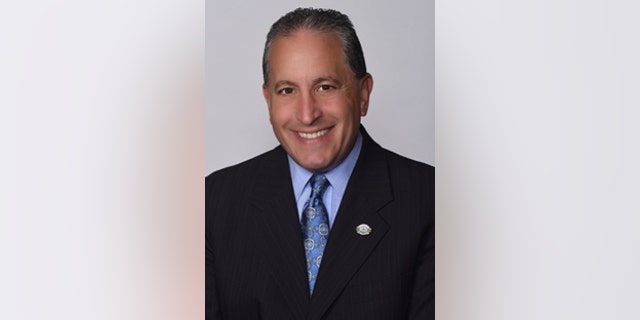
Daniel Stermer, Mayor of the City of Weston (Photo courtesy of the City of Weston).
But local officials challenging the law said they should have the ability to enforce their own rules when it comes to public safety.
Daniel Stermer, the mayor of Weston, Fla., which is named principally in the lawsuit, said he's prepared to face the consequences if the amendment holds up in court.
"If the provisions stand, I'm prepared to have the governor remove me," he said. "I'm OK with that. I'm prepared to walk this through the judicial process."
Weston is less than 25 miles away from Parkland and Marjory Stoneman Douglas High School. He said the need to tighten the laws in South Florida is critical.
"Immediately after [the shooting at Marjory Stoneman Douglas High School], it became an immediate groundswell from residents," claimed Stermer. "Asking us, 'am I safe in my schools, in my parks, in my government buildings?' And I had to give them an honest answer, that 'I can't give you a complete answer because we can't do anything about it.'"
Stermer views the issue as less about the 2nd Amendment and more about property rights, and his hope is that the courts will rule in their favor and allow him to regulate what goes on inside the public facilities he and the city of Weston oversee.
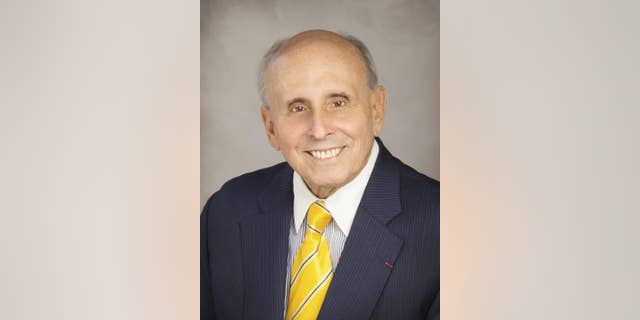
Raúl Valdés-Fauli, Mayor of Coral Gables, Florida (Photo courtesy of the City of Coral Gables).
Raúl Valdés-Fauli, the mayor of Coral Gables, which borders Miami, said he should have the authority to ban the sale of "assault weapons" in his city.
"People should have guns, pistols, revolvers in their home for their protection if they feel it's necessary. But, assault weapons do not belong in a municipality," said Valdés-Fauli. "Assault weapons are for purposes of war powers."
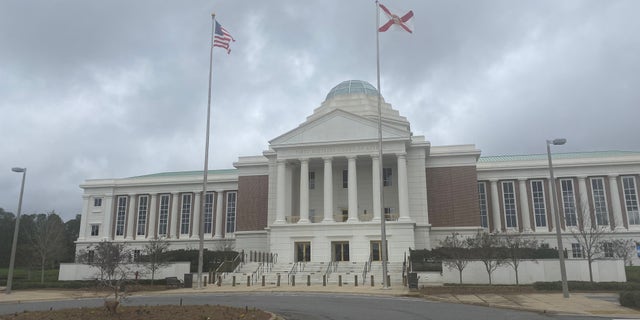
Photo of Florida's First District Court of Appeal, which must now decide if the penalties associated with Florida's preemptive firearm law are constitutional or not.
Valdés-Fauli said the penalties added in 2011 are excessive.
"I think that's wrong, and for the legislature to usurp our powers of governing our local residents is wrong. Very wrong," said Valdés-Fauli. "I think it should be in the power of the municipal government, which governs closest to the people."
https://www.foxnews.com/politics/florida-gun-firearm-regulations-local-governments-sue-state



